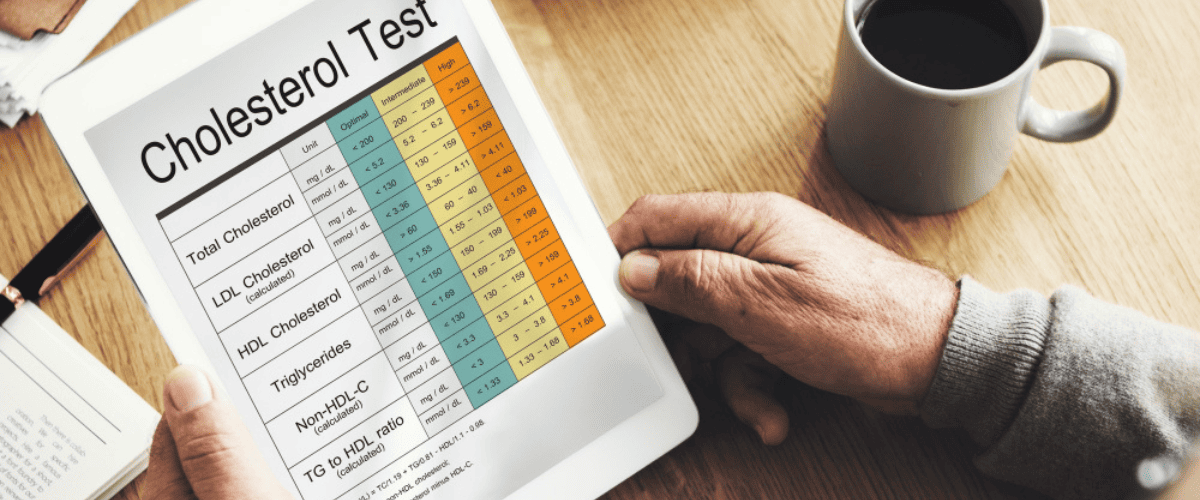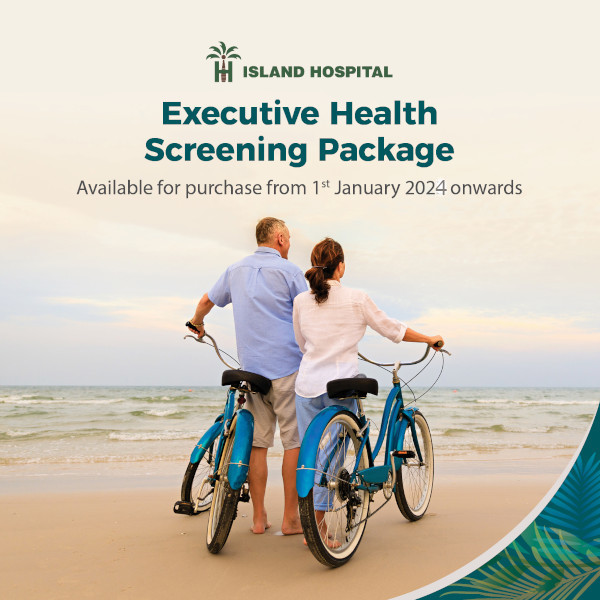
13 Jan HDL and LDL Cholesterol: What’s the Difference?
HDL and LDL Cholesterol: What’s the Difference?
By Island Hospital | January 13, 2025 2:00:00 PM
We’ve all heard the warnings about cholesterol, the waxy substance that can clog your arteries. But the truth is more nuanced.
While it’s important to manage cholesterol levels, certain types can benefit our health when consumed correctly.
Let’s uncover the good and bad cholesterol to help you adopt healthier eating and living habits for the best you!
Understanding the Differences Between Good and Bad Cholesterol
Cholesterol is a waxy substance present throughout your body. This double-edged sword plays a critical role in cell building and hormone production, but too much can be detrimental to your health.
Think of your blood as a highway. High cholesterol, or hyperlipidemia, is like traffic congestion on that highway. Too many fats (lipids) clog up your arteries, slowing blood flow and potentially leading to serious health problems.
There are two main types of cholesterol:
- LDL (low-density lipoprotein): Often called “bad” cholesterol, high levels of LDL can lead to a buildup of plaque in your arteries, increasing your risk of heart disease and stroke.
- HDL (high-density lipoprotein): Known as “good” cholesterol, HDL helps remove LDL cholesterol from your bloodstream, reducing your risk of heart disease.
Causes & Risk Factors
There are many reasons why LDL cholesterol levels can become elevated.
Some of these factors may be difficult to change, but others can be improved through lifestyle modifications and medical treatment:
| Genetic factors | People with FH inherit elevated LDL cholesterol levels. Unlike the general population, their LDL levels don't just rise with age; they soar significantly, increasing their risk of heart disease. |
| Lifestyle factors | Consuming high in saturated and trans fats such as fatty meat cuts and rich dairy products can elevate your cholesterol levels. A sedentary lifestyle depreciates your cholesterol numbers when your body doesn’t produce sufficient HDL. Smoking harms blood vessels and lowers beneficial HDL cholesterol while raising harmful LDL cholesterol. Heavy drinking can increase your total cholesterol levels. Chronic stress elevates cortisol levels, potentially leading to increased cholesterol. Additionally, the stress hormone adrenaline can trigger a "fight or flight" response, further contributing to elevated triglycerides and "bad" cholesterol. |
| Medical conditions | Carrying extra weight can contribute to high cholesterol, increasing the risk of heart disease and stroke. People with diabetes often have higher cholesterol levels. Underactive thyroid function can impact cholesterol metabolism. Kidney disease can affect the body's ability to remove cholesterol from the blood. Some medications, such as corticosteroids and diuretics, can raise cholesterol levels. |
| Hormonal factors | As women go through menopause, both estrogen and AMH (Anti-Müllerian hormone) levels decrease, leading to a rise in LDL and HDL. |
Sign to Look Out For
High cholesterol often goes unnoticed as it doesn’t present obvious symptoms. However, as cholesterol levels elevate, you may notice several physical signs such as:
1.Xanthelasma

These are yellowish, raised patches of cholesterol that often appear around the eyelids. While not everyone with xanthelasma has high cholesterol, it can be a sign of elevated lipid levels in the blood.
2. Corneal arcus
This is a gray or white ring around the cornea (the clear part of the eye). It is more common in older individuals but can also be associated with high cholesterol.
Don’t Ignore Irregular Heartbeats: Discover the importance of Cardiac Arrhythmia Screening in identifying and managing potential heart problems.
The Importance of Cholesterol Checks
Suppose you have any of the above factors or notice any physical signs. In that case, it’s crucial to get your cholesterol levels checked by a healthcare professional immediately to minimize the risk of high blood pressure, heart diseases or stroke.
Regular check-ups are recommended, especially for individuals with a family history of high cholesterol or those over the age of 40.
Cholesterol Checks: When to Get Tested
The frequency of cholesterol checks depends on various factors, including your age, risk factors, and family history. Here’s a general guideline:
| Children & adolescents (9 - 11 years) | At least once |
| Healthy adults | Every 4 -6 years |
| Adults with risk factors (family history, diabetes, heart disease) | Every 1 -2 years |
| Adults with heart disease | Annually |
| Individuals on cholesterol-lowering medication | As recommended by doctor |
Remember, everyone’s health journey is unique. Consult your doctor to tailor a cholesterol screening plan that best suits your needs and risk factors.
Ideal Ranges of LDL & HDL
A healthy balance of LDL and HDL cholesterol is crucial for heart health.
Test your total cholesterol to HDL ratio to determine your risk. Lower ratios are generally better. Generally, the recommended levels are:
| Total cholesterol | Less than 170 mg/dL 125 - 200 mg/dL |
| LDL | Below 100 mg/dL |
| HDL | More than 45 mg/dL More than 40 mg/dL More than 50 mg/dL |
Managing Your Cholesterol for a Healthier Heart
Although high cholesterol may be a silent threat, you still have the power to take control of it. Here are some simple, effective strategies to lower your cholesterol and live a healthier, happier life:
1. Follow a Healthy Diet
A heart-healthy diet is a cornerstone of cholesterol management. Incorporating cholesterol-lowering foods into your diet can be particularly beneficial for those at increased risk.
Here are some dietary tips to help lower your LDL (“bad”) cholesterol:
- Choose lean proteins
Fats in red meat, full-fat dairy products, and processed foods, can raise your LDL cholesterol. Opting for lean protein sources like poultry, fish, and beans, and choosing low-fat dairy products can help you better manage your cholesterol. - Increase soluble fiber intake
Soluble fiber in oats, beans, fruits, and vegetables can help lower LDL cholesterol by binding to cholesterol in your digestive tract. - Eat plenty of fruits, vegetables, and whole grains
These foods are rich in vitamins, minerals, and fiber, which can help improve heart health. - Choose healthy fats
Unsaturated fats, such as those found in olive oil, avocados, and nuts, can help lower LDL cholesterol and raise HDL (“good”) cholesterol. - Reduce sodium intake
High sodium intake can contribute to high blood pressure, which is a risk factor for heart disease.
2. Adopt Healthy Habits
In addition to diet, lifestyle changes can also help you manage your cholesterol levels effectively:
- Regular physical activity
Aim for at least 30 minutes of moderate-intensity exercise most days of the week. Exercise can help raise HDL cholesterol and lower LDL cholesterol. - Quit smoking
Smoking damages and constricts the blood vessels, leading to a rise in LDL cholesterol. - Moderate alcohol consumption
Excessive alcohol intake can raise triglyceride levels, which can contribute to high cholesterol. - Weight management
Losing even a small amount of weight can significantly improve cholesterol levels.
3. Take Medications to Regulate Cholesterol Levels
In some cases, lifestyle changes alone may not be enough to manage cholesterol levels. Your doctor may prescribe medication, such as statins, to help lower your LDL cholesterol. Statins work by blocking the production of cholesterol in the liver.
4. Consider Therapy for Better Stress Management
Stress can negatively impact heart health by raising blood pressure and increasing the risk of heart attack. Incorporating stress management techniques into your routine can help lower cholesterol and improve overall well-being.
Here are some effective stress management strategies:
- Mindfulness meditation
Mindfulness meditation can help you focus on the present moment and reduce stress and anxiety. - Yoga
Yoga combines physical postures, breathing exercises, and meditation to promote relaxation and stress relief. - Progressive muscle relaxation
This technique involves tensing and relaxing different muscle groups to release tension and promote relaxation. - Counselling or therapy
Talking to a therapist can help you identify and manage stress triggers and develop healthy coping mechanisms.
“I just need to consume cholesterol-free foods” – Heart disease is often surrounded by myths. Get informed by reading our article that debunks common misconceptions.
Your Future Self Will Thank You
Don’t let silent threats harm your heart. Take proactive steps starting today for healthier heart health.
Equipped with our expert team of cardiologists, Island Hospital prioritises your heart health using cutting-edge technology, tailored to your individual needs.
Put your heart health first by scheduling an appointment with us today!
Don’t Wait Until It’s Too Late – Get a Screening That Covers All The Bases

To celebrate Peel Wing’s 2nd Anniversary, we’re offering our comprehensive Executive Health Screening Package for just RM760 – delivering peace of mind through a head-to-toe health assessment.
Our package features vital health screenings, including Cardiovascular Assessment, Full Blood Picture, Radiological Screening, Diabetes Screening, Kidney Function Test, and much more.
What’s Included in Your Screening Experience:
✔ Physical examination
✔ Complete medical report
✔ Consultation by Health Screening Physician/Specialist
✔ Choice of light refreshments
✔ Exclusive Island Hospital woven bag
FAQ
What is the procedure for a cholesterol check?
A cholesterol check is a simple blood test that measures the amount of cholesterol in your blood. This procedure entails:
- Fasting: You will usually need to fast for 9-12 hours before the test. This means no food or drink except water. But most people need not fast.
- Blood Draw: A healthcare professional will draw blood from a vein in your arm.
- Lab Analysis: The blood sample will be sent to a lab to be analyzed.
- Results: You will receive your results from your doctor or healthcare provider.
What happens if my HDL is low?
When HDL levels are low, cholesterol can accumulate and form deposits in different parts of the body. This is particularly common in the reticuloendothelial system, which is involved in removing cellular waste.
Which cholesterol number is most important?
LDL cholesterol is the most critical measurement for assessing cardiovascular risk and guiding treatment decisions. The definition of a desirable LDL level is keeping it consistently low.
Related Doctors
| Derived from | Complications |
|---|






